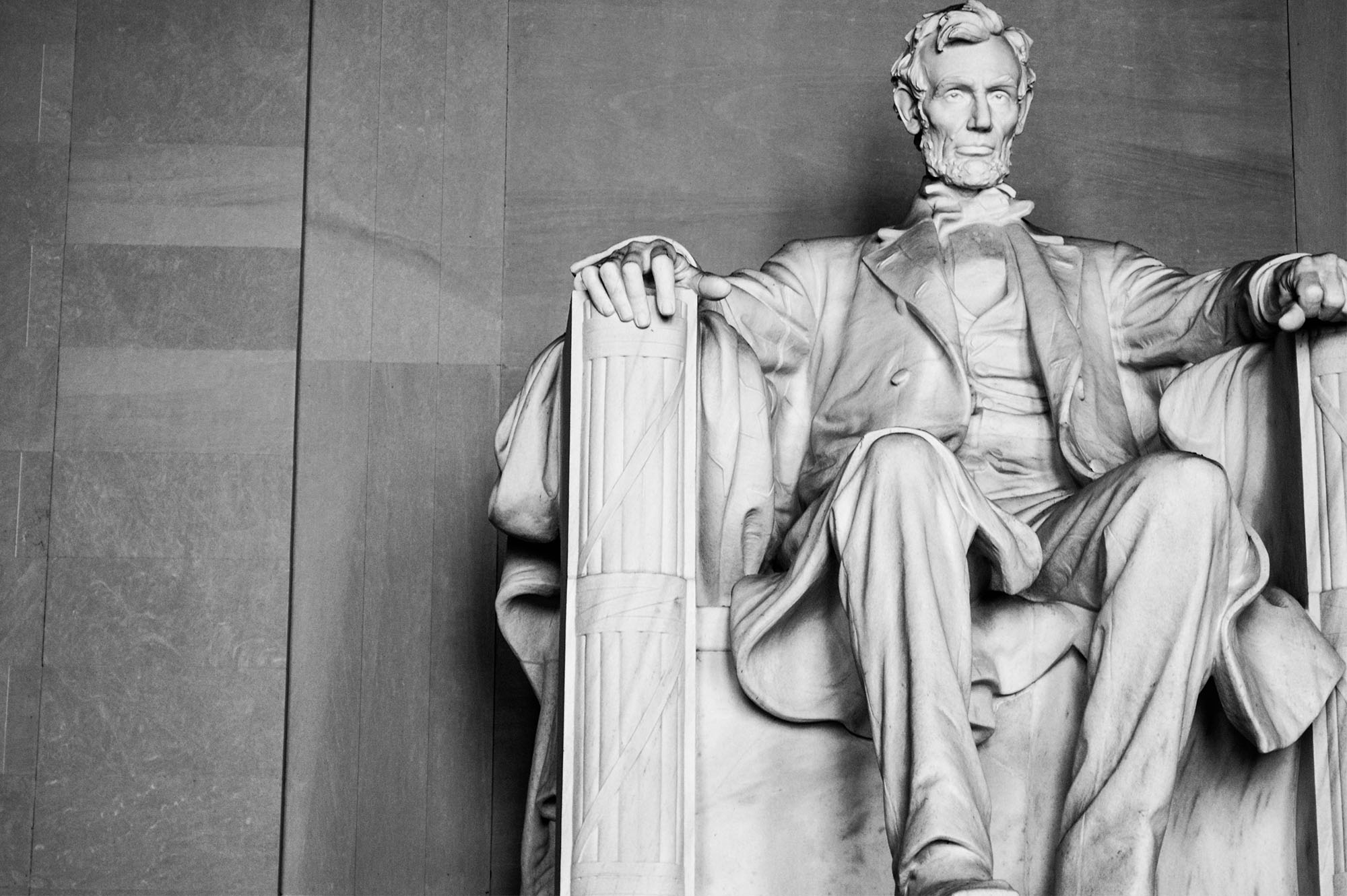
10 Qualities that made Abraham Lincoln a great leader
Abraham Lincoln, the 16th President of the United States, is often hailed as one of history’s greatest leaders. His ability to navigate a nation on the brink of collapse and to inspire a generation while preserving the Union is a testament to his extraordinary character. Beyond the iconic image lies a complex man whose leadership qualities continue to fascinate and inspire.
President Abraham Lincoln appointed the best and brightest to leadership positions in his Cabinet. Some of these individuals were also some of his greatest political rivals. He demonstrated his leadership by pulling this group together into a unique team that represented the greatest minds of his time, according to historian Doris Kearns Goodwin.
Lincoln demonstrated an ability to withstand adversity and to move forward in the face of frustration. Kearns Goodwin identified 10 essential leadership qualities that defined Lincoln’s greatness, offering invaluable insights for leadership development in today’s world. Kearns Goodwin believes these qualities are crucial for cultivating effective modern day leaders.
Capacity to listen to different points of view
While researching her Pulitzer Prize-winning book, Team of Rivals: The Political Genius of Abraham Lincoln, Kearns Goodwin learned that Lincoln had the capacity to listen to different points of view. He created a climate where Cabinet members were free to disagree without fear of retaliation. At the same time, he knew when to stop the discussion and after listening to the various opinions, make a final decision.
Ability to learn on the job
Lincoln was able to acknowledge errors, learn from them, and then move on. In this way, he established a culture of learning in his administration, said Kearns Goodwin.
Ready willingness to share credit for success
In response to concerns expressed by friends about the actions of some of his Cabinet members, Lincoln stated that the “path to success and ambition is broad enough for two” said Kearns Goodwin. When there was success, Lincoln shared the credit with those involved.
Ready willingness to share blame for failure
When mistakes were made by members of his Cabinet, Lincoln stood up for them said, Kearns Goodwin. When contracts related to the war effort raised serious questions about a member of his administration, Lincoln spoke up and indicated that he and his entire Cabinet were to blame.
This attitude of sharing both success and failure with his team members not only fostered a sense of unity and camaraderie within his Cabinet, but also showed Lincoln’s strong leadership qualities. By taking responsibility for both the good and the bad, Lincoln demonstrated his integrity and commitment to working together towards a common goal.
This approach not only earned him the respect and loyalty of his team, but also helped to build trust and accountability within his administration. Lincoln’s willingness to share credit and blame ultimately contributed to the success of his presidency and his ability to navigate the challenges of the Civil War with grace and humility.
Awareness of own weaknesses
Kearns Goodwin noted that one of the weaknesses acknowledged by Lincoln was his tendency to give people too many chances and because he was aware, he was able to compensate for that weakness. As an example, she stated that George McClellan, Commander in Chief of the Union Army, refused to follow directives about the war effort. Lincoln eventually set a deadline and eventually removed McClellan from the position.
Ability to control emotions
According to Kearns Goodwin, Lincoln treated those he worked with well. However, he did get angry and frustrated, so he found a way to channel those emotions.
Lincoln would write a “hot letter” to express his anger but would not send it, choosing to set it aside instead.
If he did lose his temper, Lincoln would follow up with a kind gesture or letter to let the individual know he was not holding a grudge, said Kearns Goodwin. She noted that one of the letters was released among Lincoln’s Presidential papers, marked as unsigned and unsent.
Know how to relax and replenish
Lincoln understood the importance of relaxation and humor to shake of the stress of the day and to replenish himself for the challenges of the next day. According to Kearns Goodwin, Lincoln had a wonderful sense of humor and loved to tell funny stories. He encouraged a healthy atmosphere of laughter and fun in his administration. He also enjoyed going to the theater and spending time with friends.
Go out into the field and manage directly
During the Civil War, many soldiers died and there were many ups and downs. Lincoln established lasting connections with the troops by visiting the battlefield and hospitals, which also helped bolster morale.
Lincoln also spent time talking with members of the public, taking ‘public opinion baths’ according to Kearns Goodwin. He held public receptions and made a point of shaking everyone’s hand and speaking to each individual.
Strength to adhere to fundamental goals
In the summer of 1864, said Kearns Goodwin, the war was not going well for the North. Members of his political party came to Lincoln and said that there was no way to win the war and he may need to compromise on the issue of slavery.
Despite the pressure to compromise, Lincoln remained steadfast in his belief that ending slavery was a fundamental goal worth fighting for. He understood the importance of staying true to his principles, even in the face of adversity.
By holding firm on the issue of slavery, Lincoln demonstrated his unwavering commitment to justice and equality for all. This resilience and determination ultimately played a crucial role in shaping the outcome of the Civil War and solidifying his legacy as one of America’s greatest leaders. Lincoln’s ability to stay true to his convictions, even when faced with doubt and uncertainty, serves as a powerful example of leadership and moral courage for generations to come.
Ability to communicate goals and vision
Kearns Goodwin stated that Lincoln had a “remarkable ability to communicate his goals to his countrymen.” He made concepts simple and communicated with an understanding of the concerns of the citizens.
When the war ended and he won reelection, Lincoln did not focus on his achievements said Kearns Goodwin. Rather, in his second inaugural speech, Lincoln focused on bringing the country together as expressed in the following excerpt:
“With malice toward none, with charity for all, let us strive on to finish the work we are in, to bind up the nation’s wounds, to care for him who shall have borne the battle and for his widow and his orphan, to do all which may achieve and cherish a just and lasting peace among ourselves and with all nations.”
Kearns Goodwin ended her keynote address with the following words from Leo Tolstoy about Abraham Lincoln. His greatness consisted of the “integrity of his character and moral fiber of his being.”
Lincoln’s message of unity and compassion in his second inaugural speech resonates even today. His call for healing and reconciliation serves as a timeless reminder of the importance of coming together as a nation, despite our differences. Kearns Goodwin’s reference to Tolstoy’s words highlights the enduring legacy of Lincoln’s character and values.
Lincoln’s greatness was not just in his leadership during a tumultuous time in American history, but also in his unwavering integrity and moral strength. As we reflect on Lincoln’s words and deeds, we remember the power of empathy, forgiveness, and a commitment to justice and peace.
Bottom line
Abraham Lincoln’s leadership remains an enduring beacon for those aspiring to positions of influence. His ability to forge unity amidst adversity, to learn and adapt, and to maintain a steadfast moral compass offers invaluable leadership lessons. As we navigate the complexities of today’s world, understanding the principles that guided Lincoln can equip us to meet challenges with wisdom, empathy, and determination. By studying his example, business leaders can cultivate the qualities necessary to lead with integrity and impact.



